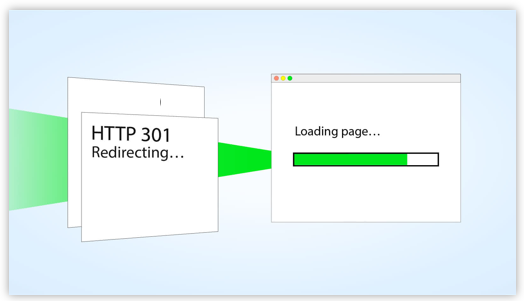The SEO world has clear policies set in place about doing things the right way or the wrong way. These policies, rules or guidelines are established to provide a good user experience to the audience on the search engines. While every business wants to rank high on the SERPs, it requires being updated with the current and changing ethical SEO practices. Black Hat SEO does the opposite of that by employing unethical techniques to rank high on the search engines. Long-term use of these practices will only hurt your SEO efforts rather than doing any good. So let’s find out in details what Black Hat SEO really is and why you should be wary of it.
What is black hat SEO?
Black Hat SEO refers to a set of ill practices that are performed to increase the website’s or web page’s rank on the search engine results page (SERP). They are ill practices because these practices violate the guidelines set in place by the search engines. It focuses on pleasing search engines rather than human audience, i.e., it does not focus on improving search experience for the users, rather this practice optimizes content for search engines to increase website rankings and traffic.
Difference between black hat SEO and white hat SEO
White Hat SEO refers to the practice of ethical tactics employed by webmasters to improve a website’s standing on the search engine results page and the overall user experience. Whereas Black Hat SEO employs aggressive and illicit tactics, exploiting the search engine guidelines to boost the rankings.
Done for quick financial returns on their website, Black Hat SEO success is usually short-lived and ends in the website getting de-indexed, penalized or banned from the search engine. While White Hat SEO practices may take time and effort to show results, they maintain the integrity of your website and fulfils your long-term goals.
Why you should avoid black hat SEO
While Black Hat SEO can shoot up the rankings of your website and increase the traffic, these are a short-term success. It is important that you understand the consequences of practicing black hat SEO. Keep in mind that these shady practices can get your website banned from the search engine and affiliate sites.
Google’s Webmaster Guidelines and Bing’s Webmaster Guidelines have openly denounced black hat SEO tactics employed by practitioners. With the Google penalties getting more sophisticated and actionable, Black Hat SEO practices can have a crushing effect on your website’s rankings and traffic.
Black Hat SEO relies on manipulating loopholes of search engines’ algorithms to improve SERP ranking without much effort. While these tactics work, no doubt, success is often short-lived. Google constantly works on improving its algorithms to provide users with the best search experience. This includes de-indexing any such website that doesn’t provide great search experience to the users and follows Black Hat SEO practices.
Employing black hat practices also puts your website at the risk of manual action from Google. Manual action and penalties are performed by human reviewers. These penalties mean that the website has violated Google guidelines and thus has been flagged resulting in not appearing on the Google search results.
How to report black hat SEO
There are two main reasons to get suspicious of and report Black Hat SEO –
- Your website is being attacked by a malicious virus or malware
- Getting outranked on a competitive keyword that your website was ranking for
If it is former, then you can request a malware review from Google after removing the malicious code. If it is the latter, then you may need to go to the Google Webmaster Tool and file a web spam report. Although, be cautious while using this tool as reporting false web spam is considered Black Hat SEO. You can also use Bing’s content removal feature to report Black Hat SEO practices.
Black hat SEO techniques to avoid
Let’s walk through some of the Black Hat SEO techniques in detail so you can avoid them in your SEO strategy.

- Keyword stuffing: Keyword stuffing refers to the act of stuffing multiple keywords in your content or code to get them ranked by search engines for the target term. This is done to manipulate the search engines to get better rankings. Keyword stuffing not only creates a bad user experience for the user but also adds no value to your website.
Following acts are described as keyword stuffing, according to Google:
-
- Adding phone numbers without any value
- Repeating words and phrases unnaturally and multiple times
- Listing cities and states in text blocks to rank the page for those places
It is easy to spot keyword stuffing. If you ever come across such content, you would see that upon reading out loud, it sounds like a broken record. The stuffing also goes on behind the scenes (read: in the code) i.e., alt texts, title tags, meta tags etc. Google is extremely smart to recognize such content that sounds unnatural.
Inserting keywords is a fundamental part of SEO, but smart keyword placement is what makes your SEO efforts a success. Focus on creating meaningful content that adds value to the reader rather than stuffing keywords in every sentence.
- Cloaking: Cloaking is a deceptive black hat practice used to trick search engines by showing one version of your website content to Google while showing another to the user. It is a simple human user v/s search engine bot scenario.
This black hat practice is done to make the website content rank for a specific search term that isn’t in the context of the webpage. The clocked pages are filled with keywords that the website wants to rank for. This is done in 2 ways:
-
- Showing a version with heavy-image content and CSS or JS to users while showing HTML text page to search engines
- Inserting keywords onto a page and displaying it when search engines crawl the page and not the human audience.
This deception can lead to your website getting penalized or even banned. The only acceptable practice is to treat the search bots the same way as you would your human audience.
- Misleading redirects: Redirects aren’t necessarily bad, but black hat practitioners use it against the purpose they’re meant for. Redirects is another misleading tactic used to mislead the audience and search engine bots. A redirect page leads users and search engines to another page.
Redirect pages are stuffed with keywords and hardly contains any content that the audience would be interested in. This black hat practice is used for manipulating search engines. These pages are usually high-quality pages meant to rank on the SERPs but upon clicking on these pages, you would be redirected to a low-quality page or a high-pressure sales page.
Using 301 redirects is a good example of misleading redirects. This type of redirect passes link juice from one page to another. Black hat practitioners use this redirect to boost their website’s rankings on SERPs. Hence, you should steer clear of using redirects in an injudicious manner.

- Duplicate content or website: Poor quality or duplicate content adds no value to the reader. Duplicate content involves stealing content from another website and using it on your own, having several pages on your website with the same content but different keywords and setting up multiple websites with the same content.
Back in the day, Google wasn’t smart enough to spot duplicate content, but the Google Panda Update in 2011 changed this. Websites with duplicate and poor-quality content were destroyed by this update. And ever since, Google has only gotten better at spotting duplicate content and penalizing such websites.
Writing original, innovative and high-quality content may take a little time, but it is a sure-shot way of avoiding penalization by search engines. Not only that, but it will also build trust among the readers by satisfying their search intent and help in converting visitors into customers.

- Link farms: A link farm is a website or a group of websites developed exclusively for the purpose of boosting link popularity of the website. Web crawlers rank the webpages based on the number of links that point to the website. Black hat practitioners use this tactic to deceive search engines by using link farms to increase the number of backlinks and boost the PageRank of a site.
Link farms have low-quality content and plenty of links that contain keywords they want the site to rank for. Google is smart enough to recognize link farms and bans any such website that indulges in this practice.
Instead of using this black hat technique, focus on creating meaningful content, graphics, etc. and earn all the backlinks naturally.
- Abusing structured data: Structured data or schema markup, also known as rich snippets, is an HTML code that’s added to a webpage to enhance the description seen on the search engine results page. It allows you to choose how your content is displayed on SERPs. Black Hat SEO manipulates structured data by providing false information to deceive search engines and users.
Abusing structured data is an illicit black hat technique and search engines like Google encourage users to report any such website that indulges in this practice.
Providing truthful information in your structured data that does not mislead the user will help elevate the user experience and keep your website from getting banned or penalized. Google provides general structured data guidelines for you to abide by while adding structured data to your website and even a helpful tool for testing them.
Parting thoughts
We all want to rank high on the search engines results page or SERPs. The right way is to stick to White Hat SEO strategies that will help your business attain its long-term goals while maintaining the integrity of your brand. If you’re unsure whether you can differentiate black hat techniques from white hat, you can outsource SEO services and hire experts to do the job for you. This also minimizes any risk in your SEO efforts.
In the end, it is always your call, whether you want to be the villain that wears a black hat or the hero in the white hat.
Reference:
-
306, 2024Understanding Google’s preference for crawling high-quality content
Crawling websites is [...]
-
2905, 2024All you should know about third-party cookies by Google
Cookies have revolutionized [...]
-
2405, 2024Helpful content update by Google to enhance website ranking
Google launched a [...]





Leave A Comment